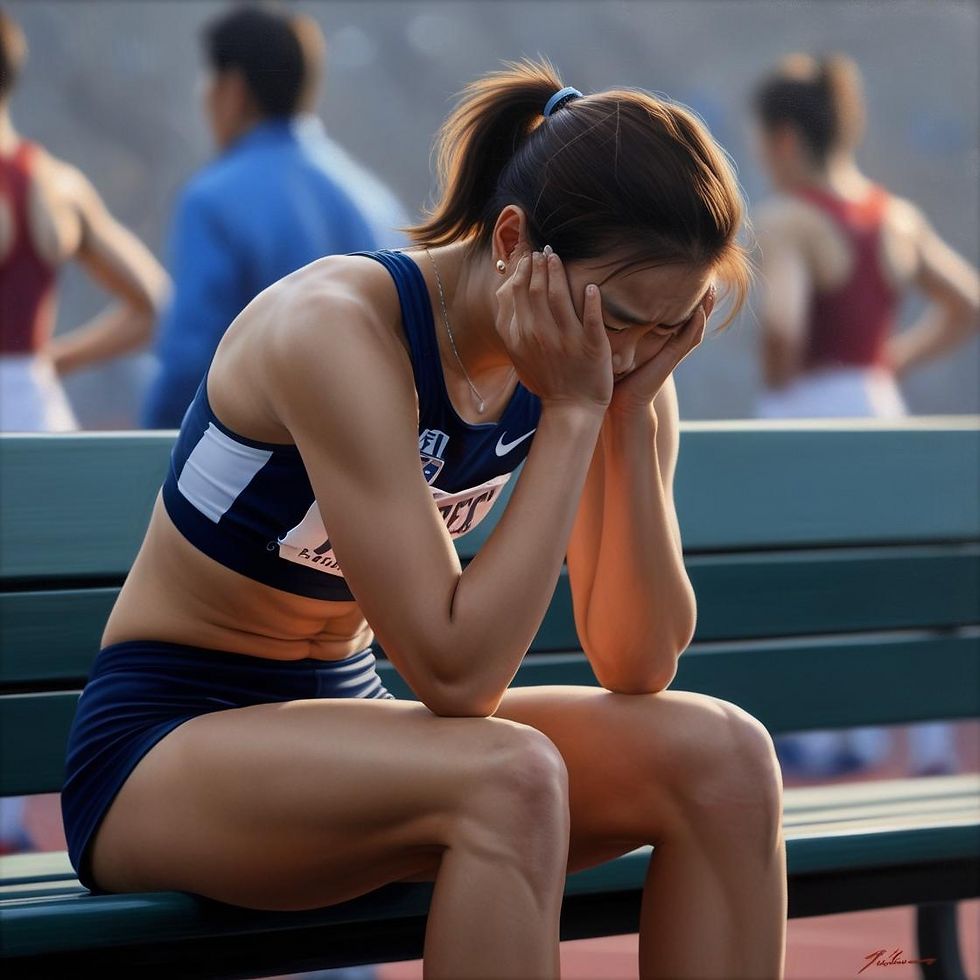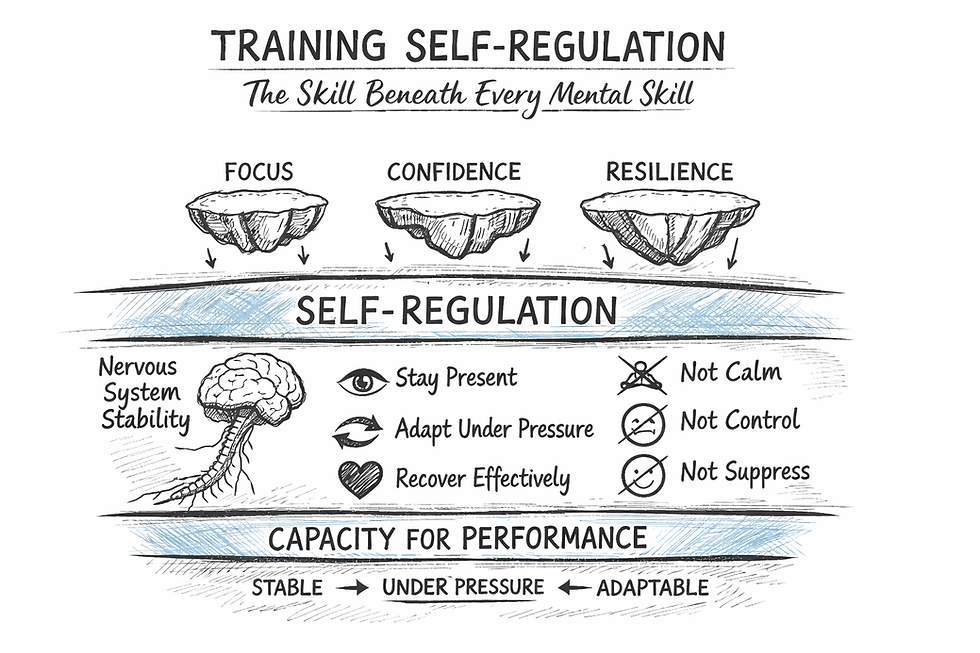Tips for Overcoming Sports Performance Anxiety
- Kate Allgood
- Nov 20, 2024
- 3 min read
Athletes know that sports go beyond physical ability; they require immense mental fortitude and focus. Balancing mental performance with physical skill is key to achieving your best, both professionally and personally. However, overcoming sports performance anxiety can be challenging amidst daily mental stressors. At Quantum Performance Inc., we provide the tools to help you push through mental blocks and distractions, enabling you to reach your goals.
What Is Sports Performance Anxiety?
Sports performance anxiety is a mental state characterized by intense feelings of doubt, fear, stress, panic, and worry. It often stems from a deep concern about failing, embarrassing oneself, or making mistakes—especially in public settings. Athletes may also feel pressure not to let down themselves, their teammates, or their families and friends.
Athletes at all levels, including professionals, can experience it. The key is learning how to manage anxiety in a way that works for you.

How Does Sports Performance Anxiety Manifest?
Sports performance anxiety can manifest not only internally but also physically. Signs may include muscle tension, pacing, fidgeting, sweating, wringing hands, or bouncing legs while sitting. An athlete may exhibit one or more of these signs.
Strategies to Combat Sports Performance Anxiety
There is no quick fix for sports performance anxiety; it requires ongoing mental and physical work. Here are several strategies that can help:
Open Communication: Talk openly about your feelings with trusted coaches or teammates.
Reframe Negative Thoughts: Shift your mindset by replacing negative thoughts with neutral self-talk.
Visualization: Imagine yourself succeeding in your performance.
Focus Techniques: Concentrate on your breathing or specific aspects of your performance to stay grounded.
Routine: Establish a pre-game routine to create a confident and positive mindset.
Many athletes find success using a combination of these techniques tailored to their personal needs. Discovering what works best for you can significantly alleviate performance anxiety.
How Quantum Performance Inc. Can Help
Based in San Diego, California, Quantum Performance Inc. is dedicated to helping athletes worldwide overcome sports performance anxiety. We have different offersing help meet the needs of each person. You can do 1-on-1 coaching, personalized performance profiling, choose do to our online course, The Athlete Within Foundation, or a combination.
Schedule a Consultation with Quantum Performance Inc.
We want you to feel confident in your decision to partner with Quantum Performance Inc. That’s why we offer a complimentary discovery call to discuss our mindset training options and how we can support you. You can conveniently schedule a call through our website at a time that works for you. Availability for sessions with our sports performance coaches may vary, so please check our calendar for options.
We look forward to being part of your journey to overcome sports performance anxiety and help you become the best version of yourself.
Own your focus. Own your game.
Kate
About: Kate Allgood is educated in the field of applied sport psychology. She holds two Masters degrees in psychology where she graduated with distinction. After a very successful hockey career, she has spent the past 14 years working one on one with high school, college, Olympic, and professional athletes to help them with their mindset, mental performance and mental skills training. Kate has also been a consultant for professional teams, including the Anaheim Ducks primary minor league affiliate the San Diego Gulls, to help the team and players develop their mental game. It is important to note that while Kate has graduate school training in applied sport psychology and general psychology, she does not diagnose or treat clinical disorders, and is not a licensed psychologist.
**The information provided is not to dispense medical advice or prescribe the use of any technique, either directly or indirectly, as a form of treatment for physical, emotional, or medical problems, without the advice of a physician. The information provided is only to offer information of a general nature to help you in your quest for high performance. If you know or suspect you have a health problem, it is recommended you seek your physician's advice.



Comments